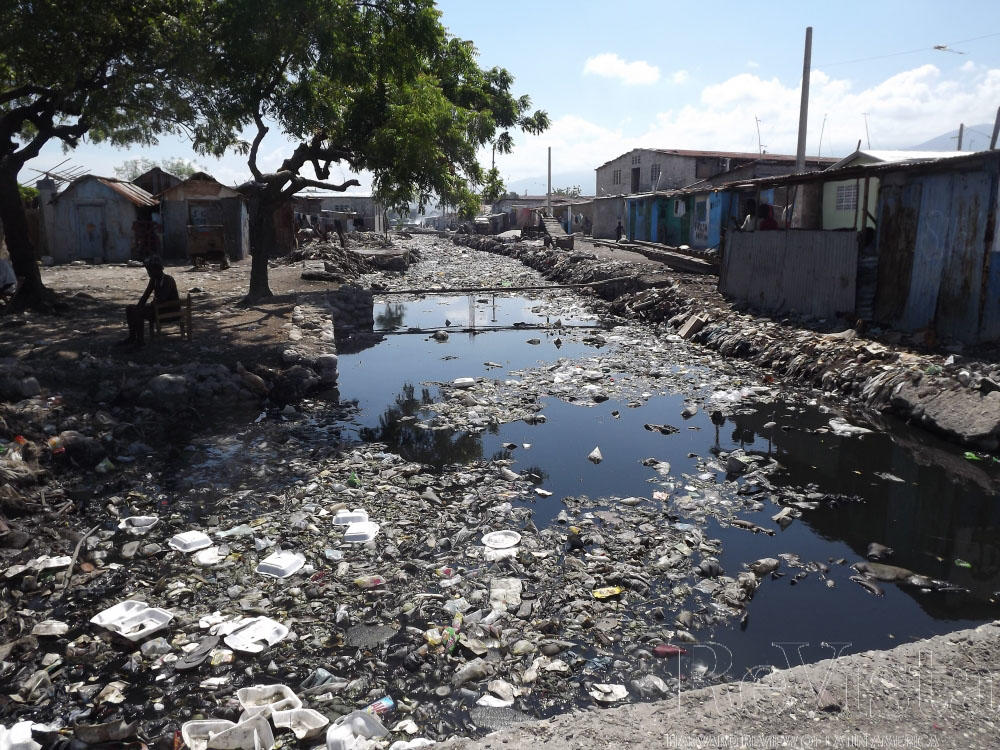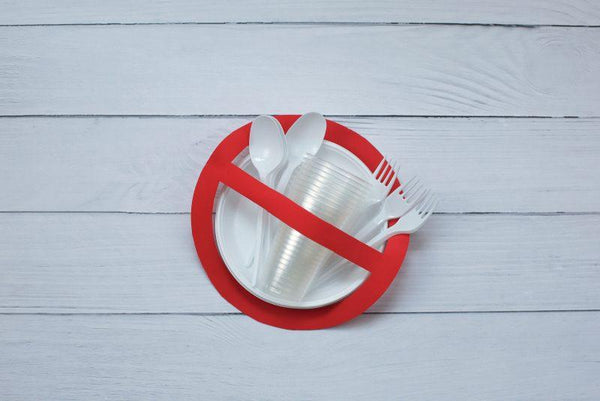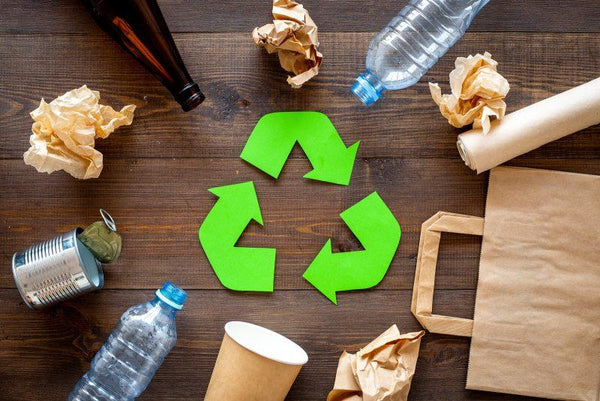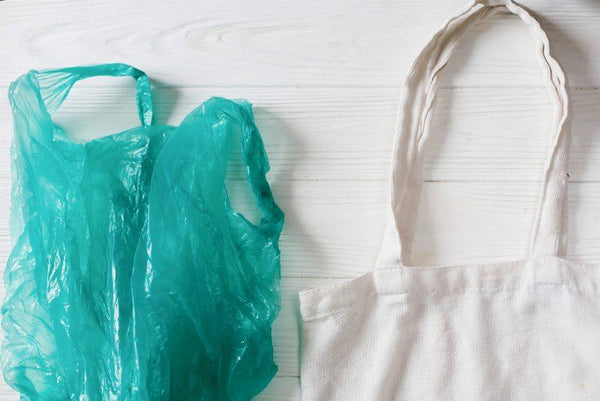
You already know that literal tons of plastic are floating in the oceans, causing a plethora of ecological and health-related problems. Aside from keeping plastics waste out of the ocean, some companies are now actively pulling the plastic out to be reused as feedstock for production. Who are they and how can you better utilize this reclaimable resource — both for the benefit of the earth and your pocketbook?
As we look out at our oceans, giant, swirling, plastic juggernauts loom just beyond the horizon. Our aquatic brethren nibble and choke upon our floating waste, absorbing harmful pollutants and passing them straight up the food chain — eventually to us. Although we’re seeing some unbelievable innovation when it comes to biodegradable plastic production, something needs to be done about the waste already drifting about the ocean.
While removing over 8 million tons of plastic from the water seems daunting, if businesses and consumers alike set their wallet to the problem, we’ve got a fighting chance. Already we’re seeing creative uses for reclaimed ocean plastic in products from packaging materials to sunglasses.
In Port Au Prince, Haiti, a relatively new company called the Plastic Bank has created a new economy — one, as the name implies, made of plastic. With the construction of roughly 30 “recycling markets” throughout the city, they’re creating a system that incentivizes the cleanup of Haiti’s massive plastic waste problem.
At present, Haiti has an insufficient system for waste removal, so lots of plastic ends up on streets and in canals, from which it makes it’s way out into the ocean. It looks a little something like this:

The plastic problem in Haiti | Image source: Harvard U
Once it’s out on the open waters, we’ve lose most of our control over it. Conversely, collecting it in cities and on beaches allows us to cut it off before it reaches our fishy friends.
Through Plastic Bank, anything from a sustainable stove to a solar-powered phone charger can be obtained via points accrued through turning in discarded plastic. With the essentials covered by their individual collection efforts, participants can use their hard-earned Haitian gourdes to pay for other important things, like education or luxury goods they otherwise couldn’t afford. All of this is based around the idea that if we look at our plastic waste as a resource with value which they’ve taken to calling it “Social Plastic.” Once equated to a monetary unit, it becomes infinitely easier to incorporate the cleanup into our economy and our lives.
Plastic Bank co-founder Shaun Frankson put it best, saying “When we stop saying plastic is waste, and we think of plastic as value, we have that paradigm shift, in that plastic is money, plastic is hope, plastic is opportunity.” In Haiti, the poorest country in the western hemisphere, the opportunity for people to earn a living as well as make their home a healthier and more beautiful place is a welcome one.
As of 2016, with the help of IBM and blockchain technology, they’ve established an official digital currency and exchange system that can be applied to any of their endeavors worldwide. This year, they expanded to the Phillipines and have their sights set on Indonesia and Brazil.
Of course, a system like this is reliant on sales and is only sustainable if companies purchase the collected plastic. For this to work, consumers need to make vocal their demand for repurposed ocean plastic, and crafty business owners need to create products that answer that demand and make the movement a reality.
On the scenic island of Martha’s Vineyard in Massachusetts, a business is partnering with the Plastic Bank and making social plastic wearable. College friends Rob Ianelli and Ryan Schoenike created Norton Point Sunglasses last year with the idea of building a product that functions both as a fashion statement and an environmental one. These slick shades are made of high-density-polyethylene (HDPE), a type of plastic that’s commonly used to make pipes and plastic lumber for construction. Although it took some time and effort to come up with a design that would work, they eventually convinced their manufacturer to go ahead with a prototype.
Recycled plastic is also about ten times more expensive than virgin plastic when it’s pulled from the ocean, which means that both customers and businesses buying this material are making a sizable investment sheerly on the basis of furthering the upcycled plastic economy and helping the people involved in cleanup efforts. The reason? One lone piece of recycled plastic with a deformity can ruin the entire batch, making the process a tricky one to maneuver if you don’t have the best equipment to handle it. However, this doesn’t always have to be the case.
As more interest and capital are put into waste and ocean plastic as a resource, and more people become involved whether as customers or suppliers, collection will become more widespread and efficient, lowering prices and making manufacturing easier and more accessible.

Image source: Norton Point Sunglasses
Norton Point is banking on the fact that people are willing to spend a little more for a quality product that also supports a worthy cause. They’ve also pledged to clean up a pound of ocean plastic for each product sold, and to donate 5 percent of their net profit to “global clean-up, education, and remediation practices.”
When you buy products made with reclaimed plastic, it might be a little harder on your wallet, but the extra cash you spend has benefits all the way down the chain of production. Not only are you helping to remove plastic from our oceans and waterways, you’re helping to stop it from getting there in the first place. Plus you’re also putting money and resources in the pockets of people in other parts of the world that need it badly such as the citizens of Haiti. By showing interest and backing it with your personal investment, you’re playing a part in the construction of an economic system that will both lead to a healthier planet and empower those less fortunate.
Initiatives like the Plastic Bank, Norton Point, and a growing number of like-minded businesses should be watched closely in the next few years. Their success could indicate the possibility of implementing similar plastic currency systems in many other countries — even here in the United States. Although we’re vastly wealthier than countries like Haiti, we are far from immune to the issues of plastic pollution and poverty. In places like Los Angeles, rainstorms send huge amounts of debris down from the city to the beaches, so much so that the city has to warn citizens to stay away for 5-10 days afterward due to health hazards.
It’s also estimated by the U.S. Census Bureau that approximately 20 percent of Californians live below the poverty line. If we could start to remedy both these problems in one fell swoop, why wouldn’t we? Giving people basic necessities in exchange for the cleanup of our cities and beaches is a win-win, market-driven scenario that we can all get behind. If cities all over our country had recycling markets with real, immediate, tangible rewards for going out and lending a hand, I think we’d see a lot more genuine effort put forward to get plastic back where it belongs – in our hands.
If we could make Social Plastic as affordable and available as virgin plastic, I don’t think anyone would have an issue choosing the former. Obviously, these are issues that we can’t just solve in one fell swoop. But with a little awareness and effort, we can change the plastic paradigm together – and help out our fellow humans along the way.

The European Parliament voted for a complete ban on a range of single-use plastic waste across the union in a bid to stop pollution of the oceans. The proposal also called for a reduction in single-use plastic waste for food and drink containers, including plastic cups.

China has long been treated as our planet’s repository for plastic waste. The nation has accepted 45% of the world's total plastic recycling since reporting to the United Nations Comtrade Database began in 1992.

Even before plastic straw bans grew trendy, California was at the forefront of using less plastic and promoting more sustainable living. California pioneered a statewide ban on plastics beginning in 2016, when the state became the first in the U.S. to ban most stores from providing customers with single-use plastic bags, following a successful referendum. [...]